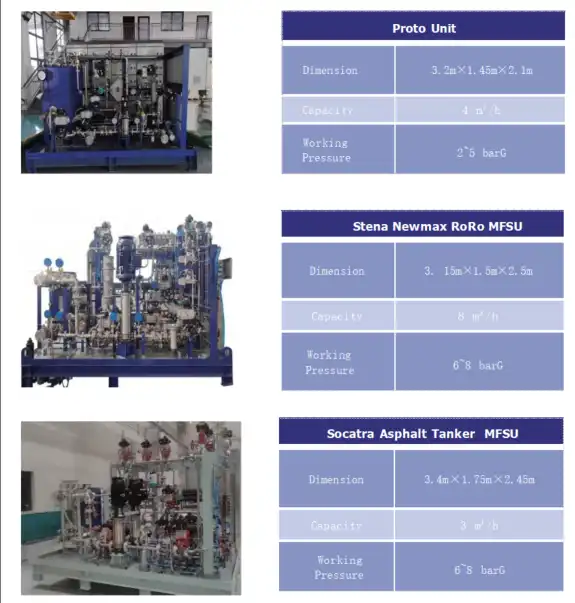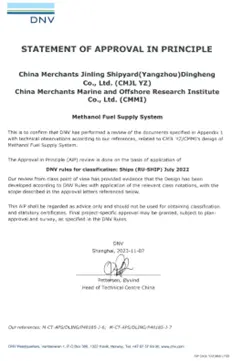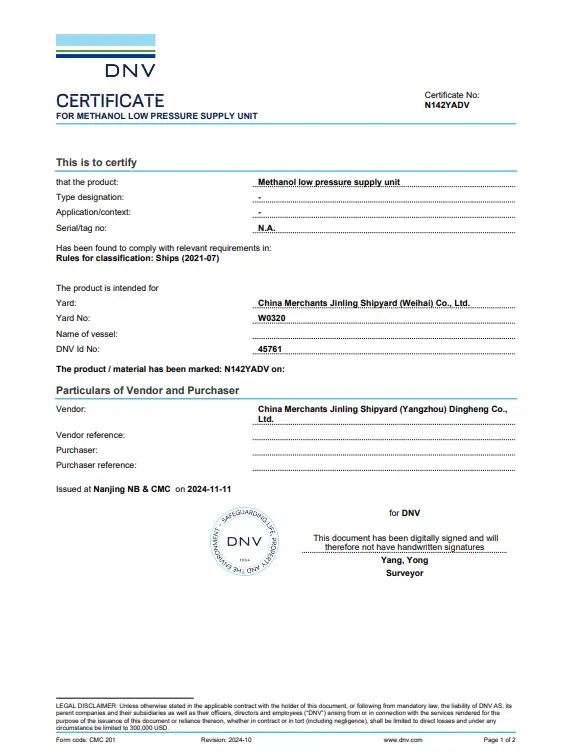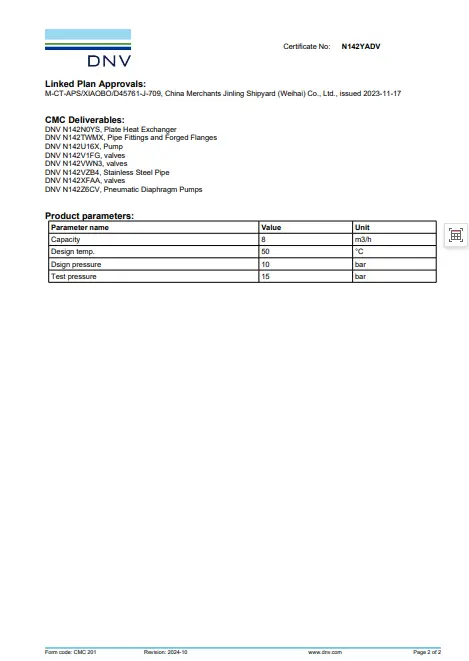Methanol Flow Regulation Assembly
Methanol Flow Regulation Assembly (MFSS) Overview
The Methanol Flow Regulation Assembly (MFSS) consists of key subsystems such as the primary supply unit, filling and transfer modules, auxiliary support systems, and safety and control components. We offer independent design and manufacturing of MFSS units, in addition to providing fully customized solutions that cater to the specific requirements of our clients.

WHY CHOOSE US
1. Broad Industry Mastery – Our group has critical encounter in dual-fuel vessel development, chemical tanker building, melted gas carrier frameworks, and other related marine advances, building up our position as a driving and trusted supplier in the industry.
2. Comprehensive Solutions – We offer complete systems that include Methanol Flow Regulation Assembly (MFSS), LNG Fuel Gas Supply Systems (FGSS), Ammonia Fuel Supply Systems (AFSS), and LPG Cargo Handling Systems (CHS).
3. Demonstrated Track Record – We have a history of effectively conveying 19 clean fuel dealing with frameworks, counting two MFSS slips for the Stena RoRo ventures, which grandstands our commitment to operational greatness and the most noteworthy quality guidelines.
4. Innovative Technology – We are pioneers in developing methanol fuel systems within the domestic market, having started our research, development, and commercialization efforts ahead of major industry competitors in late 2022.
5. End-to-End Lifecycle Support – Our services span from initial conceptual design and production to installation, deployment, and ongoing support after commissioning.
Product Specifications

Product Overview
1. METHANOL DELIVERY UNIT – This unit ensures that key methanol parameters, including pressure, temperature, flow rate, and purity, meet the engine manufacturers' specifications. It ensures stable operation during load fluctuations and transient conditions throughout startup and shutdown processes.
2. BUNKERING & TRANSFER MODULE – This subsystem, designed to comply with SOLAS-IBC Code standards for chemical tankers, addresses the hazardous characteristics of methanol, such as its low flashpoint, toxicity, and corrosiveness, throughout storage, transfer, and bunkering operations.
3. ADAPTABLE CONFIGURATION – The modular design provides flexibility for installation, allowing the system to be installed as standalone units or integrated components, catering to various vessel layouts.
4. SAFETY STANDARDS COMPLIANCE – The dual-certified design adheres to both SOLAS-IBC chemical safety regulations and IGF Code standards for low-flashpoint fuel systems, ensuring full regulatory compliance.
5. CUSTOM INTEGRATION OPTIONS – Tailored configurations are available for both new vessels and retrofits, optimized to meet the specific operational needs of each vessel.
QUALITY CERTIFICATION
DNV AIP Certified Design



INSTALLATION PROCEDURE
1. A thorough review of the vessel’s documentation and interface requirements will be carried out, addressing any technical inquiries before the installation process begins.
2. The necessary tools and equipment for installation will be prepared, and safety measures will be put in place prior to starting the installation.
3. Pre-assembled MFSS modules will be transported to the installation site using appropriate lifting and positioning equipment.
4. The modules will be securely attached to the vessel’s structure, ensuring precise alignment and adherence to flatness and stability specifications.
5. Connections for methanol transfer lines, auxiliary piping, and control cabling will be made, ensuring leak-tightness and electrical continuity.
6. Subsystems will be verified, and integrated functional testing will be carried out to ensure proper performance during bunkering operations, fuel delivery efficiency, and the operation of safety interlock mechanisms.
For more product information about Methanol Flow Regulation Assembly, please leave a message below.
